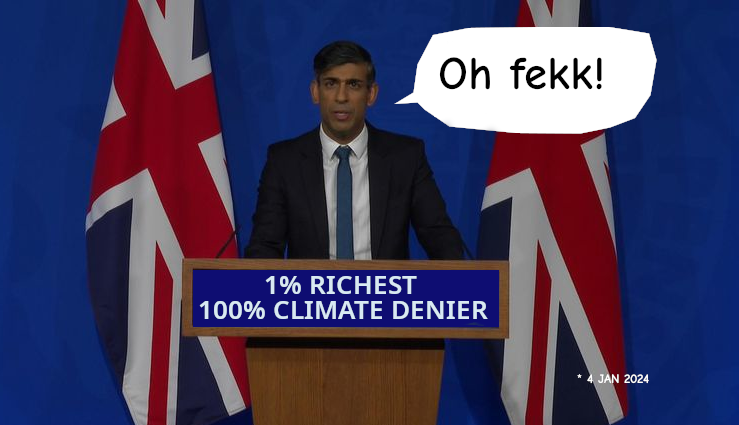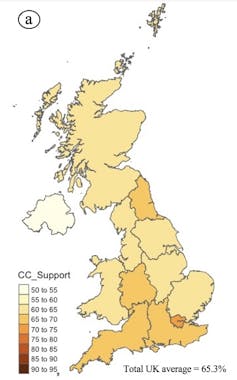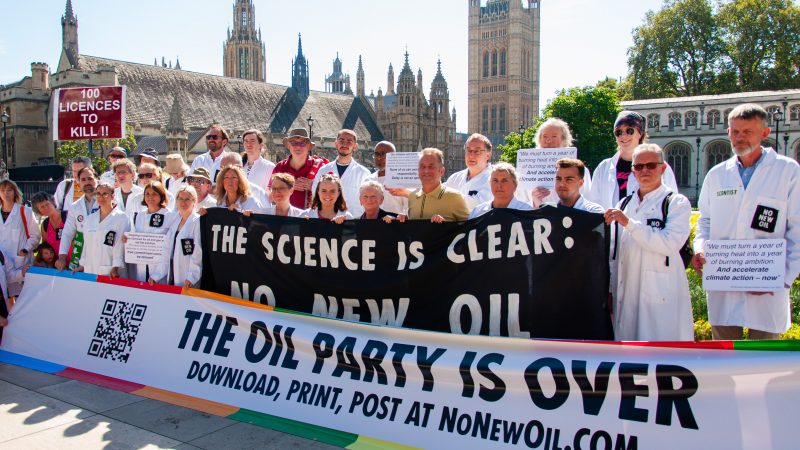Tory climate tsar Chris Skidmore quits as MP with brutal attack on Rishi Sunak

https://www.mirror.co.uk/news/politics/breaking-tory-net-zero-tsar-31817773
A Tory MP has launched a spectacular attack on Rishi Sunak’s climate record as he announced he was quitting.
Former energy minister Chris Kingswood, who led a Government review of net zero, warned: “I can no longer stand by.”
His decision creates another by-election nightmare for the Prime Minister. Mr Kingswood has resigned with immediate effect from the Conservative Party and will formally stand down as an MP when Parliament returns after the Christmas break on Monday.
…
In a statement posted on X, the Tory who signed the UK’s net zero commitment by 2050 into law said he was resigning as he could not support proposed new legislation that “clearly promotes the production of new oil and gas” by handing out more North Sea drilling licence.
He said the “future will judge harshly” anyone who backs the Offshore Petroleum Licensing Bill, which is due to be voted on by MPs on Monday.
“I can… no longer condone nor continue to support a government that is committed to a course of action that I know is wrong and will cause future harm,” he wrote in the excoriating statement. “To fail to act, rather than merely speak out, is to tolerate a status quo that cannot be sustained. I am therefore resigning my party whip and instead intend to be free from any party-political allegiance.”
He added: “I can no longer stand by. The climate crisis that we face is too important to politicise or to ignore.”
Mr Skidmore said the Bill that will be debated next week “achieves nothing apart from to send a global signal that the UK is rowing ever further back from its climate commitments”
…
Chris Skidmore’s full resignation statement is at the linked article: https://www.mirror.co.uk/news/politics/breaking-tory-net-zero-tsar-31817773
Useful information from Wikipedia. https://en.wikipedia.org/wiki/Chris_Skidmore
… In September 2022, he was appointed by the Truss government to chair the Independent Government Review on Net Zero.[5] On 5 January 2024, Skidmore announced that he would resign his party whip and his Parliamentary seat in protest at the introduction of the Offshore Petroleum Licensing Bill.[6]
…
On 27 June 2019, as Interim Minister for Energy and Clean Growth, Skidmore signed the UK’s Net Zero Pledge into law, becoming the first major economy to do so.
…
Net zero
On 26 September 2022 Skidmore launched the Net Zero Review, pledging to use the review to focus on the UK’s fight against climate change while maximising economic growth to ensure energy security and affordability for consumers and businesses.[28]
On 19 October 2022, Skidmore put out a statement on Twitter, in advance of a debate on fracking, saying that “[a]s the former Energy Minister who signed Net Zero into law”, he could not vote “to support fracking and undermine the pledges I made at the 2019 General Election”. The government was reportedly treating this vote as a confidence vote, putting Skidmore at risk of losing the Conservative Party whip.[29][30]
On 16 January 2023, Skidmore published “Mission Zero”,[31] the final report of the Net Zero Review. The 340 page report, containing 129 recommendations on how to deliver the UK’s net zero commitments, has been widely welcomed by the energy and climate sector.[32][33]
In June 2023, it was announced that Skidmore had been appointed to a professorship at the University of Bath to undertake research on sustainability and climate change.[34][35]
Although in November 2022 he had declared he would not stand again, in January 2024 Skidmore stated he would leave Parliament “as soon as possible”, stating that the relaxation of net zero targets was “the greatest mistake of [Rishi Sunak’s] premiership”.[36]
Resignation
On 26 November 2022, Skidmore announced that he would be standing down at the next general election, later stating in Parliament that ‘my constituency of Kingswood is being formally abolished in the boundary changes and there is nowhere for me to go.’[37][38][39]
However, on 5 January 2024 Skidmore announced that he would resign his party whip and his Parliamentary seat in protest at the introduction of the Offshore Petroleum Licensing Bill.[40]
https://en.wikipedia.org/wiki/Chris_Skidmore
dizzy: From the Resignation section immediately above, by resigning Skidmore is forcing a by-election in a seat that will cease to exist at the next general election expected this year. From his statement and the rest of the Wikipedia entry, it’s clear that he’s doing it because he’s opposed to Rishi Sunak’s energy policy. Part of his resignation statement reads “I cannot vote for a bill that clearly promotes the production of new oil and gas. While no one is denying that there is a role for existing oil and gas in the transition to net zero, the International Energy Agency, the UNCCC and the Committee on Climate Change have all stated that there must be no new additional oil and gas production on top of what has already been committed, if we are to both reach net area carbon dioxide emissions by 2050 and keep the chance of limiting temperature rises to 1.5 degrees.”
He ends his statement “I can no longer stand by. The climate crisis that we face is too important to politicise or to ignore. We all have a responsibility to act when and where we can to protect the future: I look forward to devoting my time in 2024 and beyond to making the future a better place, in whatever capacity I can.”





